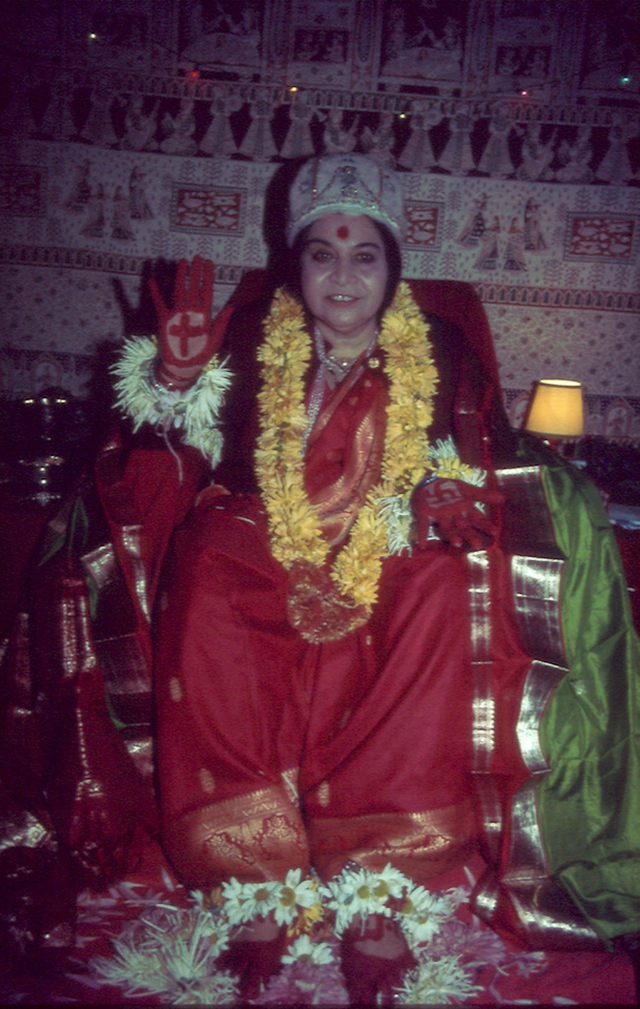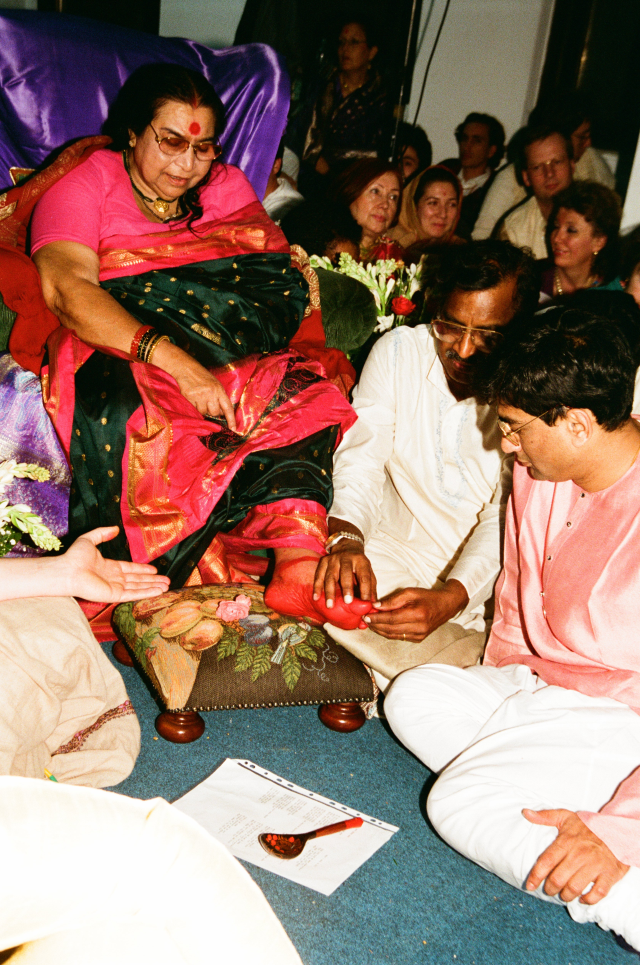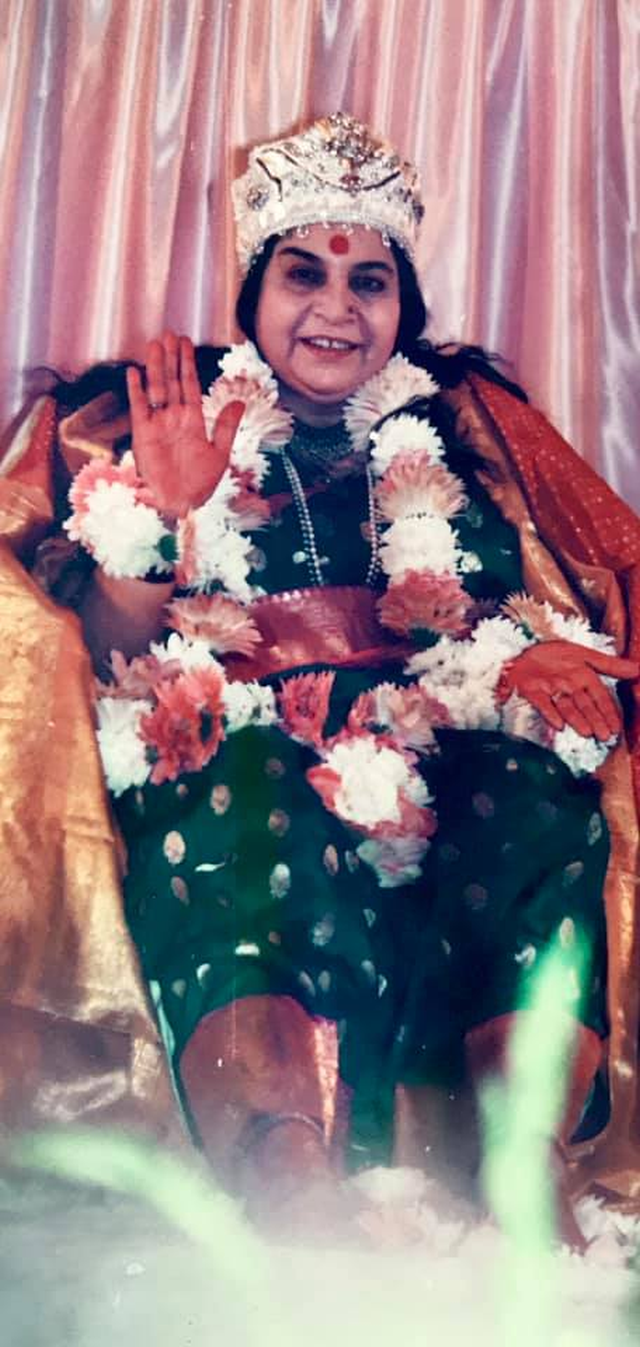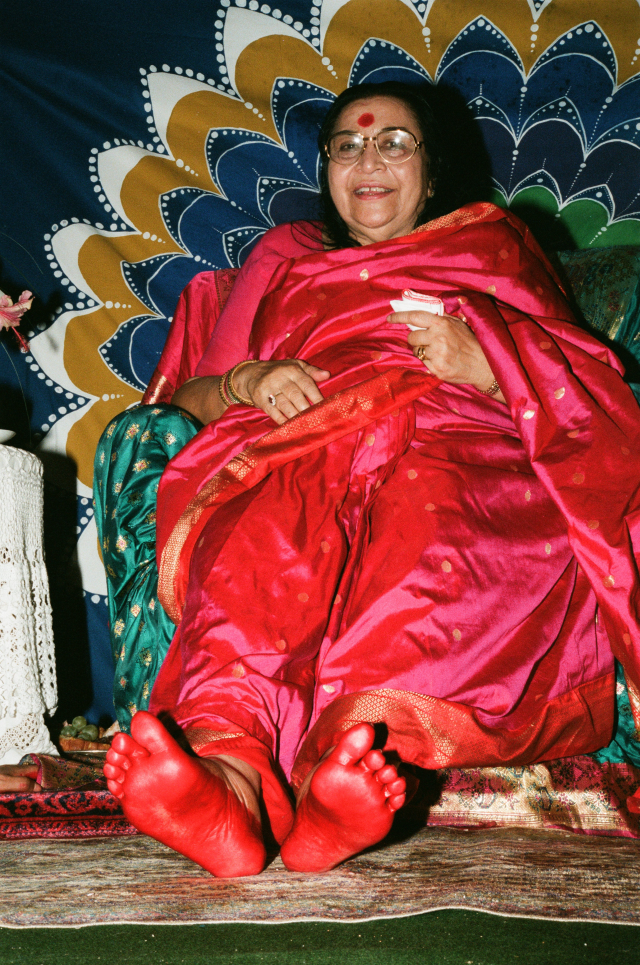2023 Celebrating the Festival of Diwālī: “brotherhood and sisterhood is the base of our Sahaj Yoga collectivity”

"...... it was a beautiful surprise. It's very joy-giving it.
...... joy was dancing in your eyes. I could see the lights in your eyes. And this is the real Diwālī.
Diwālī word comes from two words: dīpa and āwali. Dīpa means, you know, lights, and āwali means rows, rows and rows of lights. Seems it's a very, very ancient idea and all over in the world, you see, whenever they have to celebrate something then they put lights. And lights because light gives joy, gives happiness. So to overcome the darkness of ignorance also we have to enlighten ourselves. And that is why is important that everybody should get Self-realization to feel the light within themselves. And you must have noticed that after Realization the eyes also sparkle. There's light in the eyes of every Sahaja Yogi."
1990-1021 Diwālī Pūjā (4th day after Diwālī Day), Touch Your Depth, Chioggia (50 kms S of Venice), Veneto, Italy

"Today is a day we celebrate in India where relationship between brothers and sisters have to be established. They're very pure. Brothers and relationsh... sisters relationship is without any lust or greed. Is pure relationship, where the sister prays for the protection of the brother and brother play ... pray ... prays for the self-sufficiency of the kṣhema, well-being, of the sister."
1983-1106 Diwālī Pūjā (Bhāūbīj Day), Become the Ideals (Unless and Until You Become Your Ideals You Are Not a Sahaja Yogi), Temple of All Faiths (now demolished, 11c Pond St), Belsize Park, Hampstead, London, UK
"You are all, as I said, you are My light. And the light is there which is an eternal light. These lights will be finished. We'll have to light them every year. Not you people. You have eternal light and this light is going to spread Joy. What's the problem of this world? The whole problem, you take it. There's no joy. Simple as that -- there's no joy. If they had joy, they would not have done all these nonsensical things. There's no joy. When you have joy, you don't want to fight, you don't want to do anything that is harmful. You don't want to say anything after anyone, not only that but you do not want to have something that will spoil this Mother Earth or which will bring ecological problem. No, you just don't want it, don't want to do anything because it harms harms others. People feel unhappy about it whether it is here, India, anywhere. You just feel that `Why should I do such a thing which is not so congenial to others?' I mean, it's not joy-giving.
So when you have joy, you have to be joy-giving. And if you are not joy-giving, that means there's something lacking in your Sahaja Yoga and that's why we have to come up now. We have to become Sahaja Yoginīs and Sahaja Yogis. That is joy-giving society. We can change our name, if you like, if not Sahaja Yoga is good: `Joy-giving Association'. "
1991-1110 Diwālī Pūjā (5th day after Diwālī Day), Life Is For Giving Joy to Others, Tent, Cabella Ligure, Alessandria, Italy

"Rakṣhābandhan Day, they give a symbolic expression to their desire that their brother should be good. But on this day they worship their brothers, actually worship them."
1980-1109 Diwālī Pūjā (Bhāūbīj Day), The Mahālakṣhmī Power, Temple of All Faiths (now demolished, 11c Pond St), Belsize Park, Hampstead, London, UK
Bābā Māmā (on 1990-0310): This is what the brother has written for the sister: "O Nirmalā, my Sister, how much should I praise You? Because You have given the human being the experience of God."
video
"But for a gṛuhalakṣhmī, the brother is very important.
And the brotherhood and sisterhood is the base of our Sahaj Yoga collectivity. If you understand that brotherhood and sisterhood is love which is very pure, there is no expectation, is just love: is giving love and taking love. And Absolute Purity within us should exist between our relationships when we call them as Sahaj Yogi brothers and sisters. And as there is understanding, complete understanding between the brother and sister, in a family, one has to know we are all part and parcel of a family, born out [of] the same Mother.
Nobody has to shoot off, you know, nobody has to become something great, nobody has to correct others, nobody has to uh say that, `I'm something unique.' All of you have to work it out together and find out the solution working out together, in complete friendship and unison. Anyone who cuts off himself and goes out or becomes anything else, goes out of circulation and useless for Sahaj Yoga. Such a person is completely useless: the one who tries to get out of the family. All of you have to be supporting as each other, helping to each other, not shouting at each other, [not] getting angry with each other, trusting each other, not finding faults, treating each other with respect and love.
This is the most important thing, which Sahaj Yogis don't understand, that you are Saints and you have to respect each other. "
1980-1109 Diwālī Pūjā (Bhāūbīj Day), The Mahālakṣhmī Power, Temple of All Faiths (now demolished, 11c Pond St), Belsize Park, Hampstead, London, UK

"Bhogya Lakṣhmī. Bho-gya. Bhogya means: the One by which you enjoy, by which you enjoy.
Now, I mean, it's like the whole ocean of joy is around you and you are like a bird who cannot drink it. Only through the Grace of Bhūmī Lakṣhmī ... Bhogya Lakṣhmī, you can enjoy that [ocean].
So, the Spirit, though it is manifesting, you are not enjoying your Spirit. Even that. Anything that you see, say, see a flower, you should be able to enjoy. You cannot enjoy because there is thought. Anything you do there is thought: you cannot enjoy.
When there is no thought, when the Spirit is flowing, you get the complete enjoyment.
Actually, I should say, I am the Enjoyer."
1980-1109 Diwālī Pūjā (Bhāūbīj Day), The Mahālakṣhmī Power, Temple of All Faiths (now demolished, 11c Pond St), Belsize Park, Hampstead, London, UK
"Now, the last day is very important: is a very universal day, I should say, called as Bhāī Dūj. is the ... or they call it also in Marathi Bhāūbīj, the ... different names. Is the: brothers' and sisters' day.
Now, the brothers' and sisters' relationship has to be very, very strong. And the purity of that relationship is to be maintained. Is not necessary that you should be born as brothers and sisters, not necessary. But you are born, because if you are realized Souls you are born as brothers and sisters. So that purity must be maintained in the society of Sahaja Yoga. Very important it is. That we should try to develop this situation that brothers and sisters are something very pure. Their relationships are very pure. And they should not be at all challenged.
It is so much so that even if you call somebody your brother, he is your brother and the more you develop this relationship, the better your left Viśhuddhi will be. Because left Viśhuddhi is the relationship with God as a brother or with a Goddess as a sister."
1981-1101 Diwālī Pūjā (5th day after Diwālī Day), The Mahālakṣhmī Powers and the Powers of Water, Āśhram, 44 Chelsham Road, Clapham, London, UK
"So, for compassion, it has to have decency as fragrance in the oil. So how do we express our compassion? We have rākhī sisters, rākhī brothers, but I know of a lady who became friendly with rich boys as rākhī brothers. Or the other way round also, that many boys became rākhī brothers of rich women.
So one has to understand that it is not for money that you should become rākhī brothers and sisters and to exploit, but for compassion. You have to express your rākhī relationship just for the protection of each other. The compassion is so joy-giving that you should have not such conditions of money or any other stupid conditions which will kill your joy. But another thing also is that you express your love you use some things as presents that gives you joy. That doesn't mean, by any chance, that you just give it to your rākhī sister and not even to your wife, some present."
1994-1105 Diwālī Pūjā (Bhāūbīj Day), Lights of Pure Compassion, Istanbul, Turkey

"The Mahālakṣhmī is the channel of the Kuṇḍalinī, so there are Aṣhṭa Lakṣhmīs. Then Mahālakṣhmī and lastly the Dakṣha Lakṣhmī. We have got one after another these powers within us which are expressed on the Mahālakṣhmī channel."
1988-1018 Talk to Sahaja Yogis, Navarātri Celebrations (8th Day), Pratiṣhṭhān, NDA Road, Warje, Pune, Maharashtra, India
"So, for today's New Year, let us vow within ourselves, that the selfishness or the self-centeredness or the smallness in you is finished."
1981-1231 Talk to Sahaja Yogis, New Year's Eve, Āśhram, 44 Chelsham Road, Clapham, London, UK
Ādi Śhakti Mātājī tere Charano mein aya hu
Ādi Śhakti Mātājī I have come to Your Lotus Feet
Shyam Savere gun. Tere gaon, Tera hijaya hun mein,
Morning and evening I sing Your Praise
Śhrī Mā Tera hi jaya hu mein
Śhrī Mātājī I Have received a Second Birth from You
video
Nirmal Saṅgīt Saritā - Rang De Jhini
video
Tuzhe Rupa Pāhuniyā Mi danga zhalo ai
(Seeing Your serene and majestic look, we stand stunned and astonished))
video
Awaz Uthayenge
video
Jai Śhrī Mātājī!
On behalf of the festivity team!